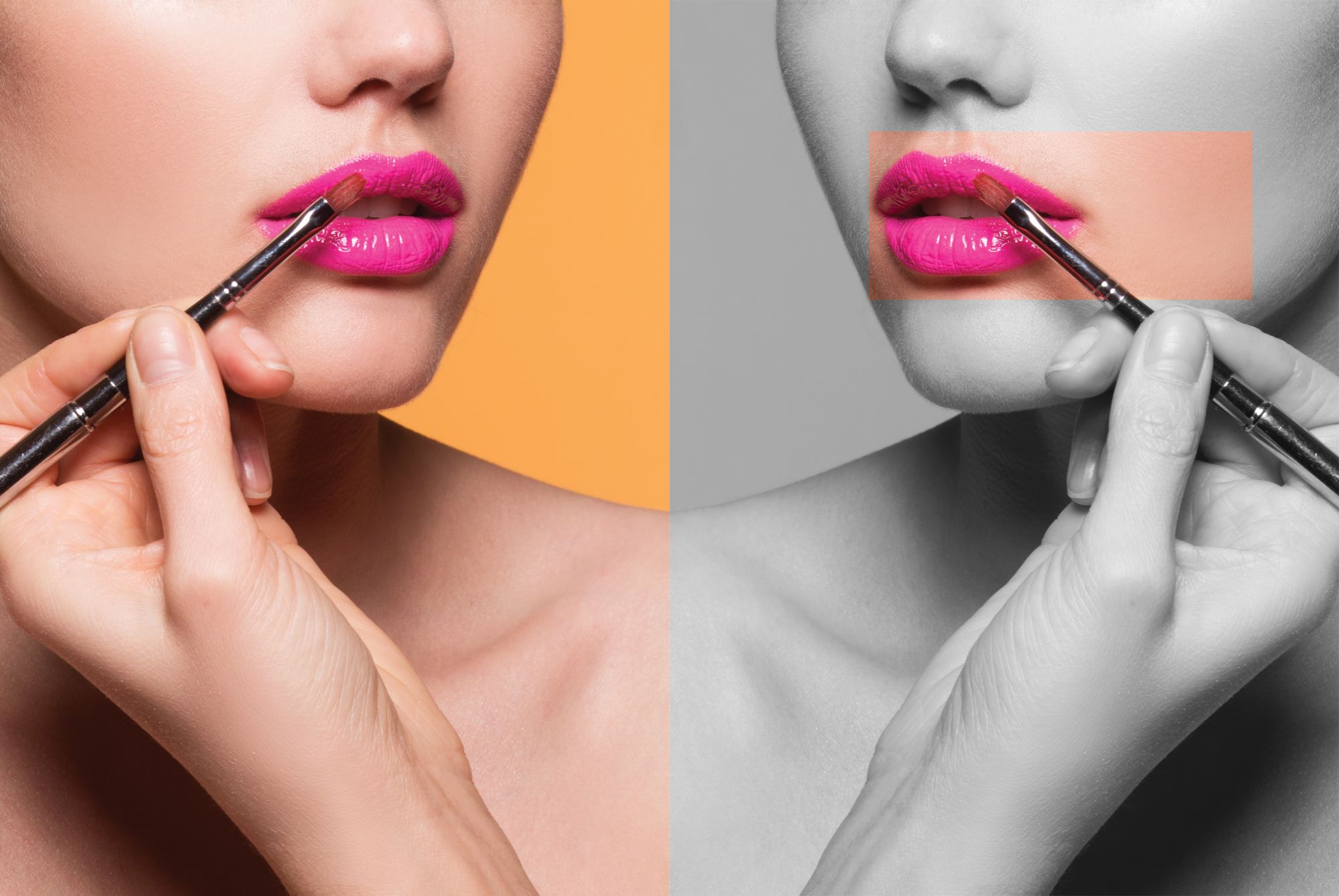
Counterfeit products are all around us. In this day and age all it takes is a simple click of the mouse to come across replicas and knockoffs, but for most luxury shoppers, these “bargains” are easy enough to avoid considering we’re not stalking the local flea market or eBay for a killer deal. Or at least that’s what we thought. Fake bags and accessories are easy to spot and stay away from, even when shopping through more reputable consignment stores—we’re vigilant about these things. But what about counterfeit cosmetics? Do you ever second-guess your Chanel lip gloss or Creed fragrances? Maybe you should—bags are not the only thing being reproduced and sold to unsuspecting buyers.

Of course, on the surface it doesn’t seem like a huge deal that we’ve accidentally purchased a counterfeit beauty product. What's the harm if the lipstick is the same color and you’ll never know? Actually, it does quite a bit of harm—these products can contain arsenic, rat droppings, lead, mercury, cyanide, even human urine. Customers using these products have reported everything from allergic reactions to blindness, even death. A counterfeit bag may bruise your pride and cause you to lose a little faith in your sartorial prowess, but a fake lipstick could literally be putting your life at risk.

One of the major problems we’re faced with as consumers is that counterfeit beauty products are not only sold directly to buyers, but more often (and even more disconcerting) they are sold directly to retailers. And with the rise of online business to business sales, any store can get their hands on a questionable stock of cosmetics—even trusted retailers like Amazon or the stores in your local mall. To get a better understanding of the counterfeit business and how to best protect ourselves against fakes, we spoke to Rob Holmes, CEO of IPCybercrime, an investigation firm that works with businesses on online intellectual property theft. He’s currently the lead investigator in Gucci’s lawsuit against Chinese site Alibaba.

“It’s at least four percent of the global economy. It’s the largest underground economy in the world,” Holmes says of the counterfeit business. A sobering statement for anyone (ourselves included) who thought it was a crime confined to downtown areas and the sketchier places on the internet. Unfortunately, it’s all around us, and cosmetics are some of the easiest products to replicate—luxury brands in particular. “The ones that are easiest to get away with are what you would see in Neiman’s. Those are the products that are mostly likely to be counterfeited just because of the appeal,” he explains. Because the price difference on a real to knockoff Chanel bag can be thousands of dollars, it’s easy to immediately spot the fake, but with a Chanel lipstick? The price difference may only be a few bucks. Or there may not be any difference at all.

One of the easiest ways for counterfeiters to sell merchandise is through the gray market. “It’s product that’s distributed out of contract,” Holmes explains. “These are companies that order products but instead of selling it to their consumers, they become distributors on their own.” He explains that these authentic products are then either sold directly to consumers through a secondary retailer or are combined with a store’s counterfeit products so that a retailer may be selling both real and fake merchandise simultaneously—at the same price point. He likens the counterfeiting method to illegal drugs: “You know when a drug dealer cuts cocaine with baby powder or laxatives? They also do that with counterfeits,” he explains. “They may get a shipment of genuine lipstick and a shipment of counterfeit lipstick and they’ll just mix it all in so every other one is fake.” This means there’s a possibility of getting authentic goods, but the purchase isn’t worth the risk.

Some of the things Holmes has seen in counterfeits have even scared him. “When we get our samples [of counterfeits]…we send them to our clients, our client has them chemically tested and the results are just outrageous. You wouldn’t believe [it],” he says. “Obviously different kinds of carcinogens like arsenic and beryllium, those are the two that always come up, and also lots of different levels of bacteria.” While it’s no secret that unfavorable ingredients find their way into authentic items, they are regulated by the government and are in such miniscule quantities that they don’t make any real difference. Counterfeits are a completely different story. “Genuine factories have all these high standards and they have to be held to all these government standards—the counterfeiters don’t. So all the procedures that a genuine company like MAC or Clinique would put into the production and precision, [the counterfeits] don’t. It’s just about appearance to them and being able to pass the product off so all those cleanliness factors…just doesn’t take place anywhere near as often as a genuine factory.”

One of the most difficult things about protecting yourself against the growing epidemic is that counterfeit and authentic products can look almost identical. While a few have just enough variation to make one look suspicious, a quick Google search will show that the two packages can be almost indistinguishable side by side. To protect yourself, Holmes suggests buying exclusively from authorized dealers of the product. “I know sometimes it seems tedious to do,” he laughs. “But everyone has a retailer they prefer so once you find out [they’re authorized] then you know to buy from them all the time.” This means checking the brand site to see which stores are permitted by the company to sell their makeup. Sometimes this means purchasing from the obvious retailers like Sephora or major department stores, other times it can mean certain sellers on trusted sites like Amazon. No matter who you end up buying from, it’s always worth doing just a little bit of extra research.









